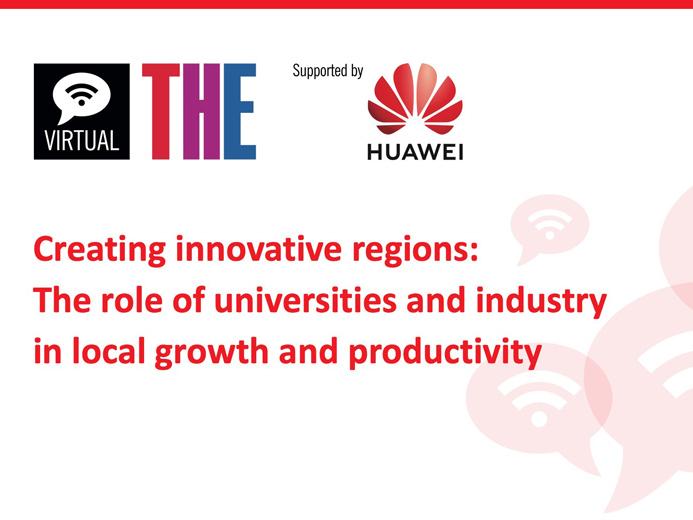
What should universities focus on when communicating with the next UK government?
Advice for universities on communication strategies that will push their need for policy action up the next government agenda
In a few days the next UK government will be formed for what may well be the most important parliamentary term for the university sector in a generation. Universities have had to manage multiple challenges in recent years. It is clear, however, that many of these challenges are systemic and will become increasingly acute without policy intervention. Universities face a deficit of more than £1 billion each year for delivering higher education and a further £5 billion for research and wider activities. Many have financial models that have become more reliant on fee income from international students, but applications are declining after years of strong growth.
Policy action by the next government is essential, but there won’t be easy solutions. Universities must work with each other, but perhaps even more importantly with wider stakeholders, to spotlight their role in the economy and society. The future of universities does not matter only to the institutions themselves and their staff and students. It matters profoundly to our country.
- Election special: advice on how higher education can make its case amid political change
- Voting counts: how to get more students to the ballot box
- Insight on teaching your students to be engaged citizens
1. Focus communication on economic growth
Whoever forms the next government will need to unlock economic growth across the UK to meet priorities and spending ambitions without substantially raising taxes. However, successive attempts at industrial strategy and growth plans have not succeeded in shifting the dial. Universities make a lot of important contributions to the UK, but in the current policy environment clearly and repeatedly articulating a case for higher education sitting at the heart of economic growth is essential. This can point to universities’ critical role in improving stagnating productivity, training the future workforce and driving innovation through research.
2. Move from measurable impact to compelling outcomes
University communication teams and senior leaders need to deliver clear, sharp messages on the role they play in driving economic growth. In recent years, many universities have captured and communicated quantitative impact reports to demonstrate their economic value. While important, these can feel abstract. There is a need to more effectively communicate universities’ role within the economy and point to the positive outcomes they help to deliver – from incubating local businesses and the impact of that on local employment and economic performance, to supporting skills pipelines and addressing skills gaps across sectors and regions. This can reflect examples from the past but must also set out a vision for the future.
3. Bring others into debates about the future and make them your champions
The question of how universities can help revitalise economic growth and make the UK globally competitive again needs to play a significant role in the debate about the future of universities and their funding. The university sector cannot lead these discussions in a vacuum but must partner with businesses, charities and policymakers to find an answer.
Universities are unlikely to secure a more positive policy environment and funding structure by lobbying by themselves. A powerful coalition of industry, local leaders and charities needs to amplify a positive vision for the future with universities at its heart.
Many of the businesses we engage with at NCUB recognise universities as one of the UK’s greatest strategic strengths. However, policymakers are often unaware of the strength of feeling within the business community. Universities have extensive networks across the UK. Making these networks aware of the risks higher education is facing, as well as its positive vision for the future, will be critical to leveraging their support. NCUB’s recent work to bring businesses into the debate about the graduate route visa featured on the front page of the Financial Times and demonstrates how bringing other voices out in support of the sector can radically shift government positions.
4. Engage with local MPs and leaders
Some communication work can be coordinated and led by national organisations like NCUB. However, individual universities have an essential role to play in leading the charge at a local level. Any new parliamentary term is an opportunity to build up relationships with new MPs and constituency teams. The political pendulum continues to swing towards more power and responsibility being devolved away from Westminster. The UK has a brilliant and vibrant network of universities dispersed right across the UK which need to express how they contribute to local priorities and progress.
5. Make communication a strategic priority
Bringing stakeholders together to debate and communicate the role of universities in driving economic growth will be resource intensive at a time when the sector is very stretched. However, we cannot assume that an incoming government will view research, higher education and innovation as a priority. A compelling case, backed by businesses and others, could lay the foundations for a mutually beneficial partnership with the next government. Thus, universities need to invest in effective communications focused on long- as well as short-term goals – for example, focusing on the long-term stability of domestic and international student numbers alongside immediate student recruitment.
Joe Marshall is chief executive officer of the National Centre for Universities and Business (NCUB).
If you would like advice and insight from academics and university staff delivered direct to your inbox each week, sign up for the Campus newsletter.


